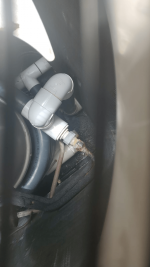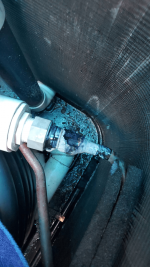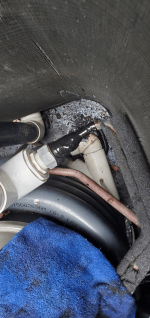The heat exchanger connection on my Hayward Heatpro 140,000 is really rusted.

I have a company that comes out and maintains the pool, but they don't seem to understand how to fix rust. They kept putting lithium grease on rusted parts instead of getting rid of the rust. Obviously, they are taking stupid pills.
I used a toothbrush to clean the rust (a lot came off) and applied a rust convertor.
 Finally, I put on anti-corrosive paint to protect it.
Finally, I put on anti-corrosive paint to protect it.

I'm worried about how much this will impact the life of the heater. Does anyone have any experience with rust in this part of their heat exchanger?
Any advice would be appreciated.
I'm also having a conversation with the owner of the maintenance company. They come out and do maintenance every 6 months. The last time was 2 months ago.

I have a company that comes out and maintains the pool, but they don't seem to understand how to fix rust. They kept putting lithium grease on rusted parts instead of getting rid of the rust. Obviously, they are taking stupid pills.
I used a toothbrush to clean the rust (a lot came off) and applied a rust convertor.
 Finally, I put on anti-corrosive paint to protect it.
Finally, I put on anti-corrosive paint to protect it.
I'm worried about how much this will impact the life of the heater. Does anyone have any experience with rust in this part of their heat exchanger?
Any advice would be appreciated.
I'm also having a conversation with the owner of the maintenance company. They come out and do maintenance every 6 months. The last time was 2 months ago.


